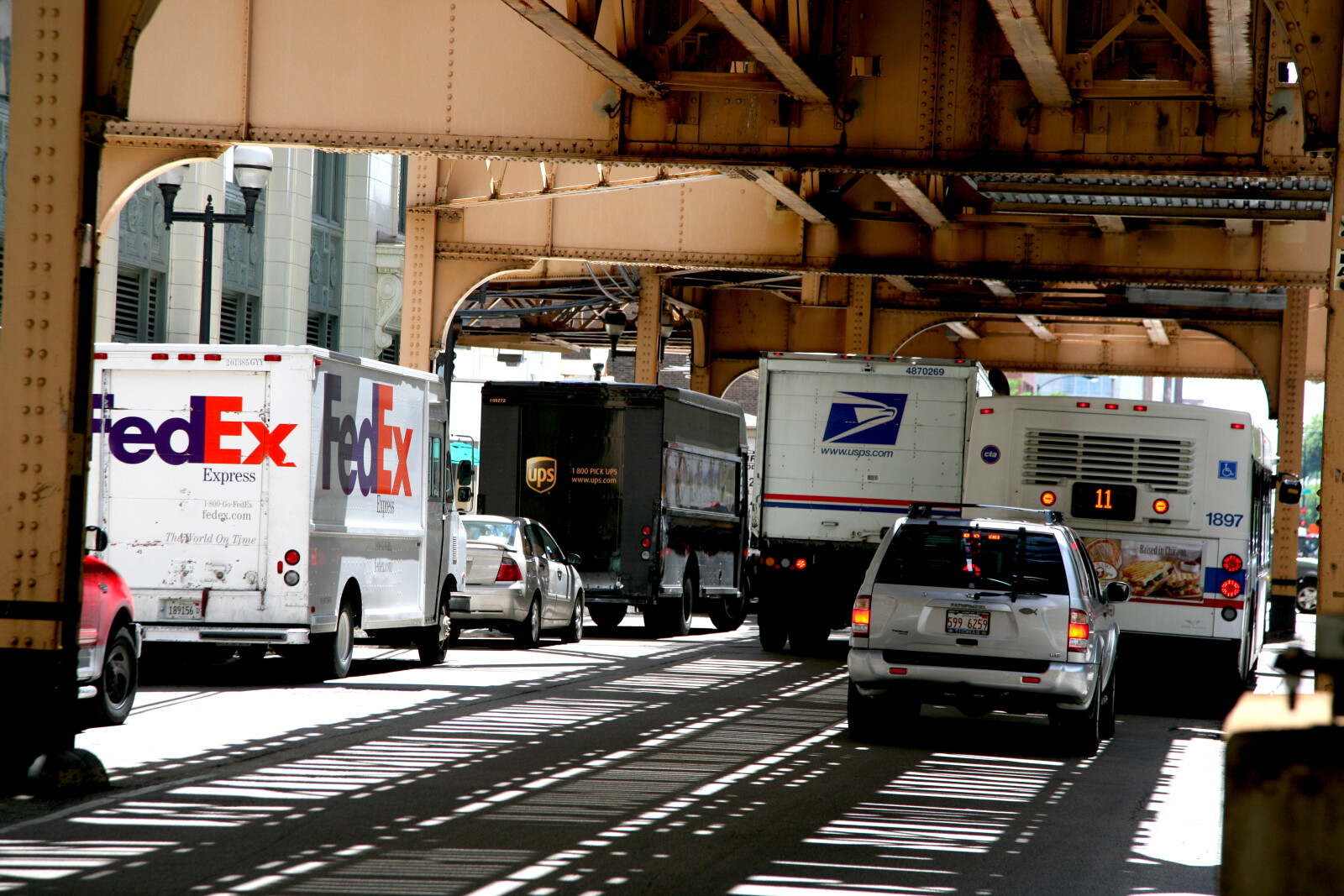FedEx Misclassification Lawsuit Leaves Drivers in Financial Struggle
The FedEx Misclassification Lawsuit, ongoing since 1999, centers on allegations that FedEx misclassified drivers as independent contractors, not employees. This controversial move allegedly allowed FedEx to shift substantial business costs onto drivers, depriving them of benefits while retaining control over their working conditions. This article examines the financial and personal impact on drivers, as well as the broader financial implications for FedEx, amidst this enduring legal conflict.

The FedEx Misclassification Lawsuit
In light of the ongoing litigation since 1999, the FedEx misclassification lawsuit centers on the claim that FedEx improperly classified drivers as independent contractors, thereby burdening them with significant business expenses and denying them employee benefits. The duration of litigation, spanning over two decades, underscores the complexity and gravity of the issue at hand. This protracted legal battle has had a profound impact on drivers, many of whom bore substantial costs associated with vehicle maintenance, insurance, fuel, and other operational expenses typically covered by employers. Additionally, drivers missed out on employee benefits they would have been entitled to had they been correctly classified. Thus, the misclassification not only imposed an unfair financial burden but also deprived drivers of their rightful benefits.
Duration of the Misclassification Litigation
Over the course of more than two decades, the misclassification litigation against FedEx has persisted, illustrating the intricate nature of the dispute and the enduring financial strife of the drivers. The protracted duration of litigation has not only exacerbated their financial strain but also underscored the complexities of employment law. This drawn-out legal battle has left many drivers grappling with the economic impact. The misclassification issue has forced them to shoulder business expenses typically covered by employers, creating a significant financial burden. The long-lasting litigation, coupled with its resulting financial impact, has left many FedEx drivers in a state of uncertainty and financial struggle, underscoring the far-reaching consequences of this ongoing legal dispute.
Allegations Against FedEx
The allegations against FedEx pivot on the company's purported misclassification of its drivers as independent contractors, a move that critics argue allowed the corporation to sidestep standard employer responsibilities and costs. This alleged misclassification has had a significant impact on drivers, leaving them responsible for various business expenses typically borne by employers. The expenses range from vehicle maintenance and fuel to uniform purchases. In addition, they were denied employee benefits, further exacerbating their financial strain. The legal consequences for FedEx have been substantial, with multiple lawsuits launched by drivers. These proceedings have not only tarnished the company's reputation but also resulted in substantial financial penalties, showcasing the serious implications of misclassification, both for the workers involved and the corporations themselves.
Financial Implications for FedEx
Significant financial implications have resulted for FedEx due to the misclassification lawsuits, with the company facing substantial penalties and reputational damage. The misclassification issue has not only led to a financial struggle for the drivers but has also created a monetary burden for the company. In an attempt to cut costs, FedEx misclassified drivers as independent contractors, thereby shifting many operational expenses onto them. However, this decision has backfired, as the company now faces financial repercussions from ongoing legal battles. Additionally, the damage to the company's reputation could potentially lead to loss of business, further exacerbating their financial struggle. The misclassification issue is a significant challenge for FedEx that has far-reaching financial implications.
The Ongoing Impact on Drivers
Continuing from the financial implications for FedEx, the misclassification lawsuits have also imposed a heavy financial burden on the drivers, exacerbating their economic struggles. The driver hardships have increased due to the legal implications that resulted from the misclassification.
- Drivers are required to bear the operating costs such as fuel, maintenance, and insurance, which would traditionally be covered by the employer.
- The absence of employee benefits such as healthcare, retirement savings, and paid leave further intensifies their financial strain.
- Some drivers, not compensated in the previous settlements, are left in a state of financial uncertainty.
The ongoing impact on drivers due to the FedEx misclassification has indeed, left them in a precarious financial position.
Unsettled Driver Compensation
How has the unresolved issue of driver compensation intensified the financial struggle faced by FedEx drivers? The unsettled driver compensation has created a precarious situation that has a profound impact on driver livelihoods. Primarily, the misclassification of drivers as independent contractors has led to significant financial burdens. These drivers, deprived of due benefits, have had to shoulder expenses like vehicle maintenance, fuel, and insurance. While FedEx saved on costs, drivers were left in a financial quandary. Furthermore, the unsettled compensation means these drivers have been unable to recover these costs. Consequently, this has not only led to a decline in their financial stability but also affected their overall quality of life, illustrating the severity of the unsettled driver compensation issue.
Driver Expenses Due to Misclassification
Misclassification of FedEx drivers as independent contractors imposed a heavy financial burden, as they were required to bear a multitude of business-related expenses. The misclassification consequences were profoundly unfavorable, with driver expenses soaring due to the need to cover costs typically borne by employers.
- Vehicle Costs: Drivers bore the brunt of costs associated with vehicle purchase, lease, maintenance, and insurance.
- Operational Expenses: Fuel, oil, and tire costs were entirely shouldered by the drivers. Expenses extended to uniform purchases and cleaning costs.
- Lack of Benefits: As independent contractors, drivers were not entitled to traditional employee benefits, including health insurance and retirement plans.
This financial struggle has left many FedEx drivers in a precarious position, underscoring the severe impacts of misclassification.
Absence of Employee Benefits
Frequently overlooked in the FedEx misclassification lawsuit, is the absence of employee benefits, a critical aspect that has further exacerbated the financial strain on drivers. As independent contractors, these drivers were denied access to essential benefits such as health coverage, retirement plans, and paid time off, which are usually associated with traditional employment. This has not only violated employee rights but also raised serious questions about the enforcement of labor laws. By sidestepping these obligations, FedEx significantly reduced its operational costs at the expense of its drivers. This situation underscores the urgent need for companies to adhere strictly to labor laws, ensuring that workers are correctly classified and granted the benefits that they are rightfully entitled to.
The Extent of FedEx’s Control
During the period of the misclassification, FedEx exercised considerable control over the drivers, blurring the distinction between independent contractors and employees. The company dictated the drivers' attire, specified their work hours, and even controlled the appearance of their vehicles.
This level of FedEx's control had a significant impact on drivers. Specifically, it resulted in:
- Substantial financial burden: Drivers bore the cost of vehicle maintenance, fuel, and other expenses typically covered by employers.
- Loss of autonomy: Despite being labeled as independent contractors, drivers were subject to strict FedEx-imposed guidelines and restrictions.
- Lack of benefits: As independent contractors, drivers were excluded from receiving employee benefits like health insurance, retirement plans, and paid leave.
The resulting financial struggle continues to affect many FedEx drivers.
Imposed FedEx Branding Requirements
FedEx's branding requirements imposed on drivers further exemplified the company's control and blurred the lines between independent contractors and employees. These imposed branding requirements meant drivers had to bear the cost of uniforms and vehicle branding, adding to their financial struggles.
| Imposed Branding Requirements | Financial Impact |
|---|---|
| Uniforms with FedEx logo | Cost burden on drivers |
| FedEx logo on personal trucks | Expense of vehicle branding |
| Specific reporting and delivery times | Opportunity cost and additional fuel expenses |
Drivers not only had to represent FedEx visibly but also follow strict timelines, adding to their operational costs. These requirements made it evident that FedEx retained significant control over their drivers, further strengthening the argument that these drivers were employees, not independent contractors. The lawsuit against FedEx's misclassification continues to shed light on these exploitative practices.
Inflexible FedEx Delivery Schedules
The rigidity of FedEx's delivery schedules further underscored the company's control over drivers, adding to the complex web of financial and operational burdens. These inflexible delivery schedules forced drivers into strict timetable adherence, without considering personal circumstances or unforeseen delays. This situation left many drivers in a state of ongoing financial struggles.
In light of this, three key points arise:
- FedEx's unyielding delivery schedules place undue pressure on drivers, leading to increased costs related to overtime work and health issues.
- The company's stringent control over delivery routes and schedules severely limits drivers' ability to manage their own time and resources.
- The inflexibility of these schedules further compounds the financial struggles resulting from the misclassification issue, as drivers bear the brunt of operational costs.
Arbitrary Route Changes by FedEx
How do arbitrary route changes by FedEx further exacerbate the financial struggles of the misclassified drivers? FedEx's control over route changes adds another layer of financial burden to its drivers. These drivers, already grappling with various work-related expenses due to their misclassification, are subjected to arbitrary route changes without any additional compensation. This not only increases their fuel costs but also their vehicle maintenance expenses. Furthermore, the unpredictability of these changes can lead to inefficiencies, longer working hours, and consequently, heightened stress levels. The financial struggle intensifies as drivers bear the brunt of these unanticipated costs and operational challenges, all while being denied the benefits that regular employees are entitled to. Such practices underline the profound financial implications of FedEx's misclassification issue.
Financial Burden on Misclassified Drivers
A considerable number of drivers have been left to shoulder a significant financial burden due to the misclassification by FedEx. Misclassified drivers were deemed independent contractors, a status that exempted FedEx from covering numerous expenses traditionally borne by employers.
This misclassification has resulted in drivers facing a financial struggle due to:
- Bearing the cost of vehicle purchases or rentals, fuel, maintenance, uniforms, and insurance, which are typically covered by regular employers.
- Missing out on benefits such as health insurance, paid leave, and retirement contributions, further exacerbating their financial woes.
- Receiving no compensation in previous settlements, leaving them to grapple with the financial consequences of a dispute they did not instigate.
In essence, the misclassification has transferred significant financial responsibility from FedEx to its drivers.
Status Updates on the Lawsuit
Continuing from the financial burden imposed on FedEx drivers due to misclassification, the ongoing lawsuit's status has seen significant developments. The court battle, which has been in progress for over two decades, has brought about several status updates that have significantly influenced the driver compensation issue. The main contention has been the misclassification of drivers as independent contractors rather than employees, which has led to unfair financial burdens on the drivers. Preliminary settlements have been reached in some jurisdictions, but many drivers have yet to receive any compensation. The court's final ruling, which will influence the future of driver compensation, is eagerly anticipated. Regardless of the outcome, the lawsuit's progress underscores the importance of proper employee classification in preserving workers' rights.
Other Notable Misclassification Lawsuits
While the FedEx misclassification lawsuit has been a prominent case, it is not the only one of its kind, as several other major companies have faced similar legal challenges regarding the status of their workers.
- Uber, the ride-hailing giant, agreed to a $20 million settlement in 2019 to resolve a long-standing misclassification dispute involving its drivers.
- Amazon faced a lawsuit, alleging that its delivery drivers were misclassified as independent contractors, which led to unpaid overtime and missed breaks.
- Instacart, the grocery delivery service, has faced multiple lawsuits over worker misclassification, leading to notable settlements.
These cases serve as a stark reminder of the misclassification consequences, including significant financial penalties and reputational damage for the companies involved.
Frequently Asked Questions
How Has the Fedex Misclassification Lawsuit Impacted the Overall Industry Standards for Classifying Drivers?
The FedEx misclassification lawsuit has significantly influenced industry standards, provoking a thorough reassessment of driver classification practices. The Industry Repercussions are widespread, prompting businesses to reevaluate their employment policies to avoid similar Misclassification Consequences. It has underscored the need for clear delineation between independent contractors and employees, and highlighted the financial implications of misclassification on workers. This case serves as a precedent, potentially impacting future regulatory decisions and labor practices in the industry.
What Types of Support Services or Resources Are Available for Drivers Affected by Fedex’s Misclassification?
Support resources available for drivers affected by misclassification include Union Advocacy groups and Legal Counseling services. Unions can provide advocacy and collective bargaining to negotiate better working conditions and benefits. Legal Counseling, on the other hand, can offer advice and representation in cases of employment disputes. These resources can help drivers understand their rights and navigate the complex legal landscape surrounding their employment status.
Have There Been Any Changes to Fedex’s Operational Practices as a Result of the Lawsuit?
The implications of the lawsuit have prompted FedEx to make some reforms to their operational practices. The company has taken steps to restructure their business model and adjust the classification of their drivers. However, it is important to note that these changes are ongoing and are subject to evaluation and potential modification. The ultimate goal is to ensure compliance with labor laws and fair treatment of all FedEx drivers.
Are There Any Similar Lawsuits Against Other Delivery Companies for Misclassification of Drivers?
Indeed, similar lawsuits for misclassification of drivers have been brought against other delivery companies. Firms like Uber, Lyft, and Amazon have faced legal challenges related to driver unionization and misclassification consequences. These lawsuits argue that these companies misclassify their drivers as independent contractors, thereby bypassing employee benefits and protections. This shift of financial burden onto drivers reflects a broader industry issue, not solely confined to FedEx.
What Legal or Policy Measures Can Be Taken to Prevent Such Misclassification Issues in the Future?
To prevent future misclassification issues, policy revisions and legal safeguards are necessary. Policy revisions may include clearer criteria for classifying workers as independent contractors or employees. Legal safeguards could involve stricter penalties for misclassification, increased oversight of businesses, and clear avenues for workers to challenge their classification. Furthermore, regular audits could ensure businesses are adhering to employment laws. These measures would help protect workers and ensure businesses bear the appropriate costs and responsibilities.

This post has been generated by AI and was not reviewed by editors. This is Not legal advice. Please consult with an attorney.




